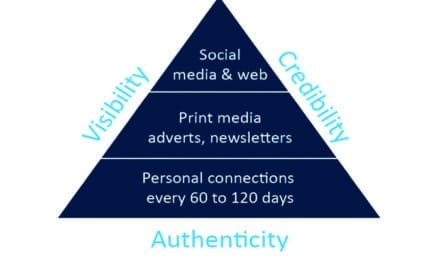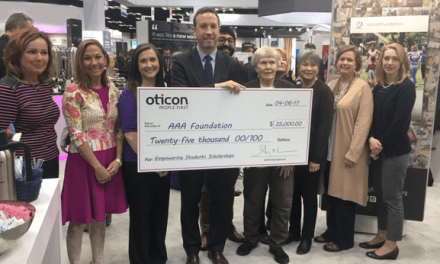The Hearing Review sat down with Stephanie Czuhajewski, MPH, executive director of the Academy of Doctors of Audiology, to discuss the results of the new “Hearing Health & Loss Prevention” study focused on consumers’ perceptions of hearing loss and hearing care. She shares her thoughts about why more younger people don’t seek out hearing care and how audiologists and other HCPs could use insights from the study to better understand and help patients.
Podcast: Stephanie Czuhajewski on What Keeps Younger People from Seeking Hearing Care
The Hearing Review: This new study from Synchrony and CareCredit surveyed more than 2,000 consumers aged 18 to 55 about their thoughts on hearing loss and hearing care. This is an interesting age range to survey, in contrast to an older population in their 70s, 80s, and beyond who are more generally expected to have hearing loss and use hearing devices. Why, in your opinion, is learning what younger people think about hearing care and hearing health so valuable?
Stephanie Czuhajewski: Sure, absolutely. My background is in public health, so this is an issue that I’m extremely passionate about, because I feel like prevention is the one place on the continuum of care that hearing health hasn’t really focused enough on, and audiology services aren’t focused enough on. And so this is something that I think is really important and a perfect and appropriate time to actually execute a survey like this, because I think we’re in a place where young people are more susceptible than ever to noise-induced hearing loss. So I think that now is the pinnacle time for us to be introducing this type of a survey.
HR: The study also surveyed audiologists. And half of them said they are seeing more younger patients who they are diagnosing with hearing loss. Do you think hearing loss is a growing problem among younger people? And is part of it because they don’t recognize the factors that can affect their hearing?
Czuhajewski: Yes. I think there’s maybe a two-pronged reason for why audiologists are seeing and treating more younger people. I’m actually encouraged that perhaps it’s because more young people are seeking out audiology care. And so they’re being diagnosed and getting into treatment earlier than they had before.
But I think also, as you suggest, and as the survey suggested, that it may be that young people are finding themselves in more situations where they’re exposed to noise on an ongoing basis, whether it’s through listening to their headphones all the time, going to sporting events, participating in activities like band, and even things around the house, like mowing the yard, using power tools, things like that, that I think people don’t often think about can really be those types of things that on an ongoing basis can harm your hearing.
HR: I also found it interesting that 75% of consumers who were surveyed said they would be willing to lower their exposure to loud noises to help protect their hearing, but many were still unwilling to discuss their hearing with a healthcare professional. And 70% of consumers surveyed said they consider hearing health a priority. But only 10% reported visiting an audiologist in the past 12 months. So there’s clearly a disconnect. How influential is the stigma associated with having hearing loss and wearing hearing devices making this age group feel “old”?
Czuhajewski: Stigma is still very much an issue among this population, although those dynamics are changing a little bit. But if you look in other countries outside of the U.S., even countries that really have a good subsidy system for hearing devices and services, the uptake on adoption of hearing aids and other treatment services is still not as high as it should be. So I definitely think that some of that can be attributed to stigma.
Some of the stigma, though, is diminishing as we do more to raise awareness about optimizing one’s hearing over the lifetime. So our hope is that people will never have to get used to wearing hearing aids because they would prevent hearing loss from the onset by wearing hearing protection and doing other things that will help optimize hearing over a lifetime.
But we also hope that they will be conditioned to understand that regular visits to the audiologist and early intervention when that does become necessary—and if it does become necessary with technologies like hearing aids, cochlear implants, and other technologies—will be something that will be more widely adopted as people are conditioned to want to take care of their hearing health and understand why that’s so important.
And that’s where there are some real gaps, if you think about how effective dentistry has been in conditioning us to adopt preventive behaviors from a very early age, and how important those regular checkups are for preventing cavities and other things. So that when people do end up having a situation where maybe they do have a cavity, they’re already conditioned to know, “Hey, I need to go to the dentist, and I need to take care of this promptly.” And I think that is what’s really missing in hearing health is the preventive side.
But then also the understanding that when you do suspect that you have a hearing or balance problem, that you’re immediately recognizing the need to go to the audiologist and address it very early on, rather than waiting for a long period of time for things to maybe get worse.
HR: Speaking of recognizing the need to visit an HCP, the study seems to suggest that more people would get their hearing checked if they were better informed about the impact of delaying hearing care, especially the link between hearing loss and dementia. Can you expand upon this, and what might be done to help bridge that gap in knowledge?
Czuhajewski: Untreated hearing loss has been associated with many other health conditions and negative consequences, including, as you mentioned, dementia. I think we want to be very careful to not scare people into being overly concerned about what hearing loss might mean in terms of other health outcomes, but really make it more about the importance and the positive reinforcement of how optimizing your hearing health over a lifetime can help perhaps prevent other negative outcomes from happening. And, just on the whole, understanding how hearing health relates to your overall quality of health, and your overall well-being, I think is a message that from a public health standpoint, is very, very effective.
And yes, we want to make sure we’re getting good information out about some of the associations [between hearing loss and certain conditions] and certainly early intervention, as we have more linkages with some other health outcomes. But at the same time, again, we want to make sure that we’re trying to do it in a positive way. And I believe that that really is more effective, particularly with younger people, if you look at other public health studies, than us attempting to sort of use the scare tactic to try to get people into care.
HR: There are clearly several barriers to people visiting audiologists or even talking to a professional about hearing care. Do you think more people would see a hearing care professional if they were aware of the different financial options available to cover the cost of their services?
Czuhajewski: I absolutely do. And I thank you for bringing that up. Because I think in addition to stigma, access and the ability for one to be able to financially cover the cost of services are two other key factors that prevent people from seeking [hearing] care. So it’s cost of care, access to care, and stigma.
Stigma, I think, again, can be effectively addressed through messaging and raising awareness and helping people better understand the importance of prevention in early intervention.
Cost of care and access are things that, even once people have the motivation and they’re ready to go get diagnosis and treatment, can really inhibit their ability to do so. And I think the more that people are aware that there are financial options out there that can help them with that, the more likely they are to seek that treatment when they need it. And I think there are a number of different things that can contribute to that.
I know that The Hearing Review and others have covered, at great length, the Over-the-Counter Hearing Aid Act and some of the implementation of that. And I think that that’s one approach. But there are very real financial barriers that people have in terms of accessing prescription hearing aids. And more work needs to be done on the advocacy side to help ensure that there’s better coverage for hearing aids, particularly for young adults and adults, because I think that’s a real gap in care.
In a lot of cases, there’s good coverage for pediatrics, and there’s some coverage for older adults if you look at things like Medicare Advantage and other options. But from a commercial standpoint, commercial insurance, there’s very hit-or-miss insurance coverage [of prescription hearing aids] for working age adults. And I think that’s a real challenge.
One of the ways that we can help people sort of bridge that cost problem is through financing options, like CareCredit and services like that. I think those are very important for consumers to be aware of, and can provide an important bridge to care for many, many people.
Further reading: Roundtable: Why Rechargeable Hearing Aids Are Trending
HR: Some of the consumers surveyed for this study reported that they do wear hearing devices, and 86% of these participants said they wished they had gotten them sooner. To me, this highlights the benefits that so many younger people are missing out on by not addressing their hearing care needs earlier. With that in mind, what do you feel are the most important takeaways from this study?
Czuhajewski: For me, one of the most important takeaways from the study is that we have still a tremendous amount of work to do in terms of raising awareness about the importance of hearing health among the younger populations. But secondly, I think it’s It’s about ensuring that there’s a better access to care, better access to coverage, and that people do have a good understanding that there are options available to them, that can help them if they have a hearing or balance concern.
There’s a lot of work left to do from an advocacy standpoint, as we discussed, and this really highlighted that for me. But I’m also very encouraged and I actually was surprised at the number of younger people who actually are giving good consideration and thought to the importance of hearing care and their hearing health. And for me, I think that gives us a very good platform from which we can start to build out some of those messages.
Featured image: Stephanie Czuhajewski, MPH, executive director, Academy of Doctors of Audiology
Original citation for this article: A Study of Younger People’s Perceptions of Hearing Care: An Interview with Stephanie Czuhajewski, MPH. Hearing Review. 2024;31(6):16-19.





